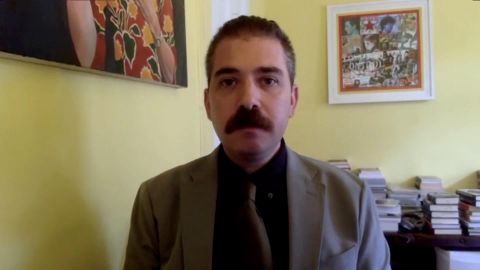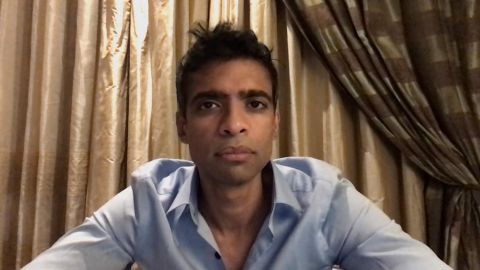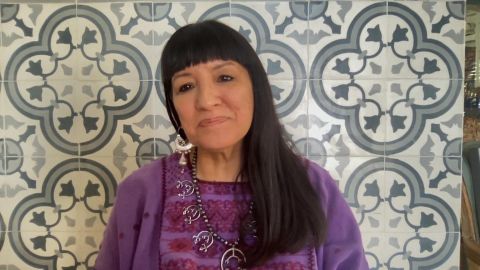Read Transcript EXPAND
ANAND GOPAL, “THE NEW YORKER”: Well, when we think about the war in Afghanistan, we tend to have a very vague idea. But, in fact, on the ground, the war was only fought in part of the country, and that’s in the rural hinterlands, mostly in Southern Afghanistan, places like Helmand and Kandahar province. And so I was really curious to see, what was life like for people who’ve been living in some cases through four decades of conflict? So I decided to travel to Helmand Province this summer to interview dozens of women to try to find out.
BIANNA GOLODRYGA: I’m just curious, how did you find these women? And were they open to speaking with you? I know you spent a significant amount of time with a woman named Shakira, who seemed surprised that she shared a name with one of the world’s biggest pop stars.
GOPAL: Yes, I mean, many of these women have never actually met foreigners, or, as Shakira told me, that she’s never met a foreigner who wasn’t carrying a gun. So their only experienced with the international community is through violence, is through the military. And so it was difficult for me to actually meet them at first. I had to go through grandmothers, because, in these very conservative, traditional areas, it’s very unusual for men, unrelated men, to speak with women. And this is unrelated to the Taliban. It’s been this way for a long time. And so I first met with some grandmothers, and then they referred me to other people. And, in time, I met women like Shakira. And every single time I met somebody, I asked them, tell me your life story from the beginning. And when they did that, I was really shocked. Even as somebody myself who has been covering this conflict for a decade, I was shocked at the level of violence that they had seen, whether it’s airstrikes, or roadside bombs, or kidnappings, or whatnot.
GOLODRYGA: Yes, because so much of war, especially for those that don’t live through it, is told through the lens of the good guys and the bad guys, right? And one would assume, obviously, that the good guys would be the Americans and allies that come in and support the Afghan army. And it’s not as simple as that. And this is really what gets to the crux of your piece here. And I want to just read one verse from. You write: “The Taliban takeover has restored order to the conservative countryside, while plunging the comparatively liberal streets of Kabul into fear and hopelessness. This reversal of fates brings to light the unspoken premise of the past two decades. If U.S. troops keep battling the Taliban in the countryside, then life in the cities could blossom. This may have been a sustainable project, but was it just? Can the rights of one community depend in perpetuity on the deprivation of rights in another?” I mean, is it really as binary of a choice as that? Are you sacrificing — or do these women feel that their lives are being sacrificed for the lives and freedoms of women in larger cities?
GOPAL: You know, every single woman I met, I asked them about women’s rights. I said the United States says that one of the reasons why they have invaded Afghanistan and they support the Afghan government is to bring rights to women.
About This Episode EXPAND
Anand Gopal; Daniel Bogado; Spencer Ackerman; Sandra Cisernos
LEARN MORE



